
Issue 062
May 2010
“Leaders aren’t born, they are made,” the late Vince Lombardi once proclaimed – and let’s face it, having won a bagful of NFL titles with the New York Giants and Green Bay Packers, he should know.
Lombardi is a sporting legend, not just a success story, but a legend. Give him a football team and he would turn them into world beaters, as he did with the Giants, the Packers, and even [over a 12-month period] the Redskins. Hell, even the Super Bowl trophy is named after him.
Lombardi was the NFL’s very first ‘supercoach’. Now, some 40 years after his death, the world of mixed martial arts is growing increasingly impatient to hail its own pioneering mastermind. Greg Jackson currently sits as close as anybody to the mantle of supercoach after being named Coach of the Year at the inaugural World MMA Awards ceremony, but Jackson was voted the cream of an exceptional crop.
Shawn Tompkins, Ricardo Liborio, Mark Dellagrotte and Greg Nelson are just four of the powerhouses creating and attracting the best fighters on the planet right now, in a sport that is evolving faster than Brock Lesnar’s ground game. But what makes these guys the best? What makes Greg Nelson the go-to guy for Lesnar? Why does Greg Jackson command the full respect of Georges St Pierre? And why do fighters fly in from all around the world to train with Shawn Tompkins?
“When I first starting training with Shawn, everything he said and did seemed so practical and simple. Everything made sense, I just knew I had to train with this guy if I was going to go anywhere in the sport,” explains WEC lightweight Chris Horodecki (13-2), who came under Tompkins’ wing from the age of 13. “We usually watch whatever tapes we can get on an opponent two or three times, discuss what we’re going to do and then head to the gym to start working on it. It’s a simple formula but it’s the most effective,” adds fellow Tompkins student Sam Stout, who won Fight of the Night honors in both of his last two UFC fights.
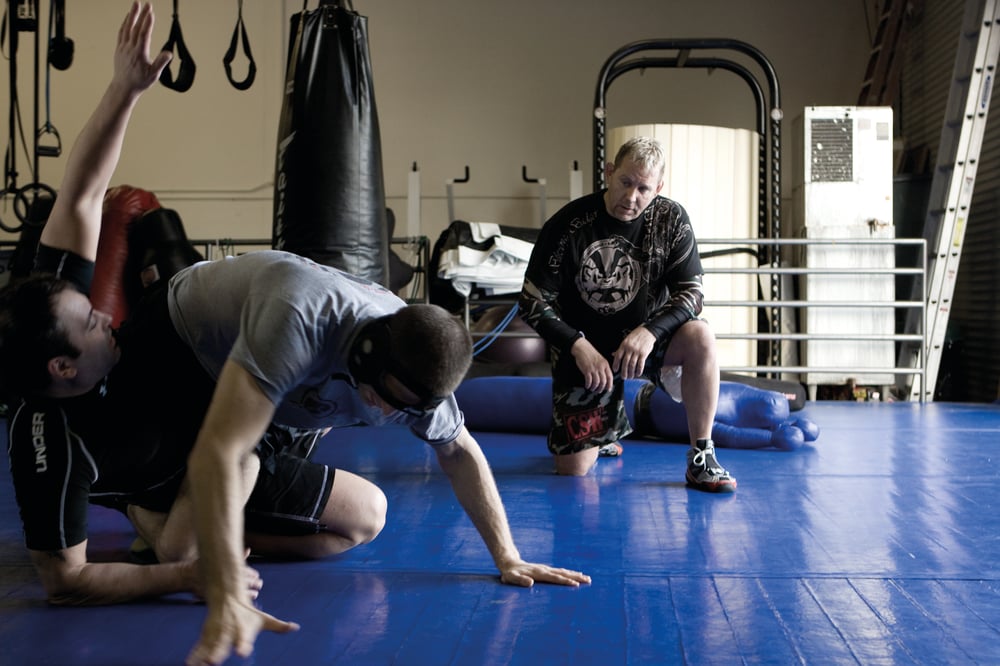
Simplicity, it seems, is the hallmark of a great coach. Arguably the most influential manager in the history of English soccer, Liverpool’s Bill Shankly once captured the power of simplicity when asked for the secret to his team’s success: “We take the ball, pass it to the nearest red shirt – and, if in doubt, pop it into the opposition’s net.” Under his guidance, Liverpool often did.
Shankly’s words came laced in irony. His theory of simplicity made success sound effortless, yet the truth is the exact opposite. Success requires a whole load of hard work. Shankly knew that too, as did boxing guru Cus D’Amato, who was responsible for two of the most notorious heavyweights in boxing history – former champions Floyd Patterson and Mike Tyson. “When two men step into the ring, one and only one deserves to win,” D’Amato once said. “When you step into the ring, you gotta know you deserve to win. You gotta know destiny owes you victory because you trained harder than your opponent. You sparred harder. You ran farther.”
D’Amato placed as much trust in a high work ethic as he did in a love of fear (which was to be seen as an inspirational tool, not a hindrance), and even after he passed away in 1985 that insatiable thirst for effort lives on in the likes of Greg Nelson and Erik Paulson, who team up to coach Brock Lesnar. “If you hit Brock, you aren’t gonna knock him out,” states Paulson. “He has never been knocked out in our fight camp. He’s realized he can take one or two hits on his way in and then grab you. That’s dangerous for his opponent.
“But the crucial thing, regardless of which fighter you’re training, is to break people’s spirit. If you want to get the best out of a fighter, you’ve got to take them beyond anything they’ve ever experienced, break their spirit. Me and Greg both know that’s super important.
“We want our guys to be technically advanced, but we train our guys super hard. I can’t ever see guys coming out of mine or Greg’s camp losing due to conditioning. We push our guys to their very limits, so often it becomes a case of ‘you either have the right mental approach or you don’t.’”
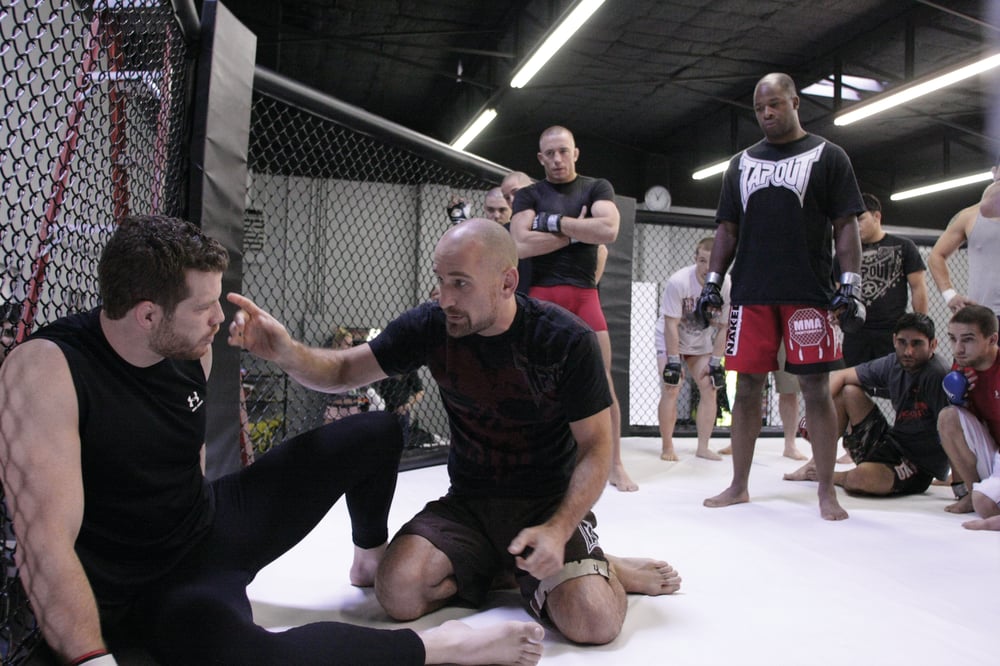
Lightweight contender Clay Guida, widely recognized as the most relentless fighter in the UFC, knows all about the importance of pushing his body to the absolute point of collapse. He recently took the decision to switch to Greg Jackson’s camp ahead of his loss to Kenny Florian, and Guida reveals his new mentor finds mythical words of inspiration for when the going gets really tough.
“When we were running up the mountain the other day, he came out with: ‘A man who laughs in the face of hard work is a man to be feared,’” says Guida. “Things like that get you to your next level. Greg’s known for conditioning. We train up in the mountains where the altitude is high, which was obviously a big reason for setting up his gym in Albuquerque.”
Hard work alone does not guarantee success though. In the same way Frank Mir mocks those who claim they train seven hours per day, Paulson insists hard work is only beneficial when channeled in the right direction. Or in Lombardi’s words: “Practice does not make perfect. Only perfect practice makes perfect.”
“A lot of people lose fights in the gym because they direct their training at the wrong aspects, like focusing on clinches when you have to remember that to get to the clinch you’ve got to have good striking,” explains Paulson. “I believe Shooto is one of the most technical fight organizations out there, but, when I used to train, I used to train for a large amount of time sometimes not knowing if I was doing the right things.”
Paulson, who looks after the likes of Josh Barnett, James Wilks and Renato ‘Babalu’ Sobral, gives an example of how he and Nelson combine to train their fighters ‘right’. “My specialty is to look at an opponent and figure out where his strengths and weaknesses are. A month out from a fight, we’ll do pressure tests on our fighter where all his sparring partners fight like his opponent. So a month out it’s suddenly ‘OK, you’re gonna go southpaw, you’re gonna use your rear hand and your front hook and you’re gonna shoot doubles.’
“Greg’s name is so well known that he will get a world-class wrestler straight out of college and teach him how to fight. The MMA style that Greg teaches is perfect for a wrestler. It’s not flopping on your back and doing stuff you’re not used to, a lot of it is easily applicable to what wrestlers already know. These guys are coming in and thinking ‘We’re being taught how to do stuff that was illegal in wrestling. That’s perfect.’”
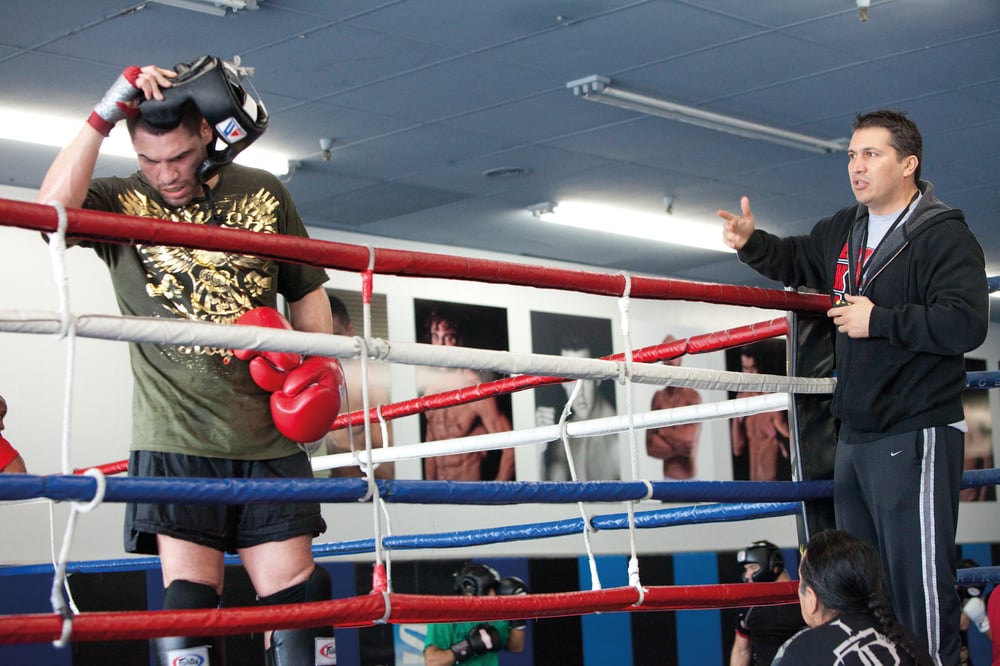
Technical innovations, more so than any other factor, are where coaches can truly elevate themselves to supercoach status. Most trainers can teach the basics of MMA and demand bagfuls of effort, but few have the Muay Thai expertise of a Liborio, the wrestling prowess of a Nelson, or the pure MMA knowledge of a Jackson.
That’s why D’Amato was so good. Despite numerous rants and raves about fear (the word became his trademark), D’Amato became most famous for one piece of technical brilliance, the peek-a-boo style taught to Mike Tyson.
Tompkins owns the striking realm in MMA according to Horodecki who, having seen his coach work with the likes of Vitor Belfort and Wanderlei Silva, labels Tompkins’ stand-up ‘second to none’. “A lot of coaches try to put boxing or Thai boxing into MMA, but it’s not the same and any good coach will tell you that,” says Horodecki. “There’s a particular way you’ve got to strike for MMA so that you can avoid takedowns and so that you set up different moves. Tompkins knows that. His striking for MMA is the best.”
Paulson would beg to differ on the issue. “Greg [Nelson] has cornered me in the past and he is easily one of the best pad-holders in the world. He has years of knowledge on pad-holding and the creativity he uses to create different drills is ahead of its time. Techniques get passed around as the sport grows, but Greg’s pad-holding remains top drawer.”
Guida prefers not to pigeonhole Jackson – he doesn’t sit in one box. Mark Dellagrotte’s Muay Thai might mean your car is running on the best wheels in the business, and Nelson’s wrestling might give you ultimate steering; Guida insists that working under the magic of Greg Jackson is like going through a full service.
“Everyone knows my conditioning will always be there. I will always work my butt off on my conditioning. But now I’m working the technical side under Greg,” explains Guida. “I have plenty to improve on. My striking is lacking, my ground game is lacking, my wrestling is lacking. Greg’s definitely made some improvements on my striking already, tweaking things with my feet, encouraging me to throw punches in more than ones, more than threes.
“He’s not a coach who attempts to change you as a fighter. He takes my strength and redirects it. He does minor things with footwork, striking, ground game, finishing fights. He tweaks parts of my game, he doesn’t try to reinvent the wheel.”
So what happened in the Florian fight?
“I had Kenny guessing in the first couple of minutes. I had him moving around so I could work for the takedown, but then I stepped away from the game plan and ended up standing flat-foot in front of Kenny, which is not where you want to be against Kenny Florian. That was totally my fault. I don’t blame the coaching at all.”
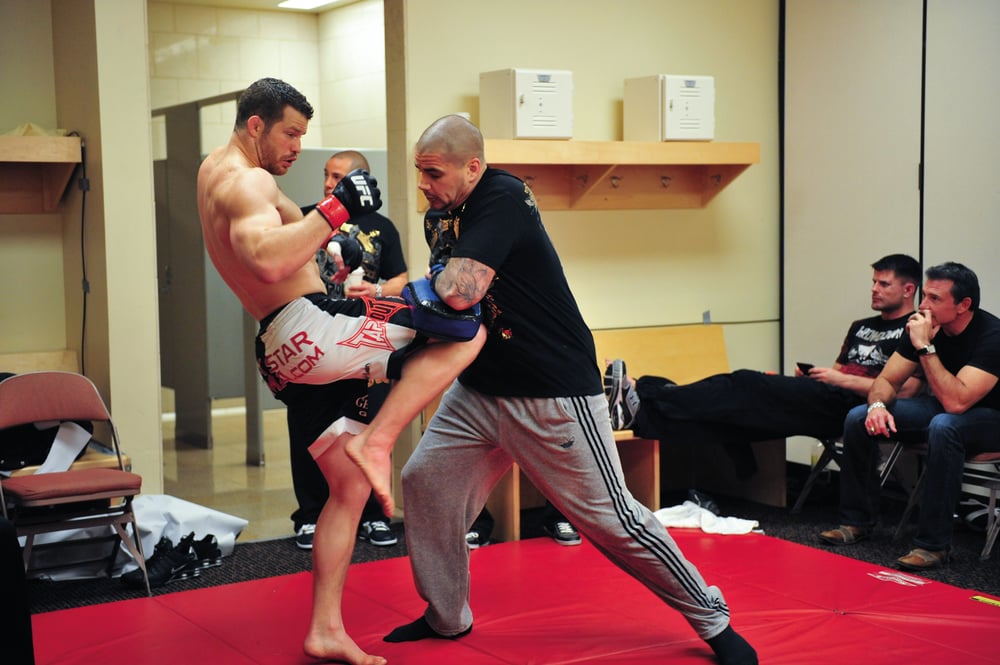
Trust. If there is one overwhelming emotion that exudes from the words of each fighter in this article, it is total trust in their coach. Fighters by nature have to be confident, they have to be a little arrogant most of the time too (even Brock), but when it comes down to the wire the most important thing is that they believe in what they’re doing.
“Life’s battles don’t always go to the stronger or faster man. But sooner or later the man who wins is the man who thinks he can,” says Lombardi. The hallmark, it seems, of any supercoach is that his fighter trusts and believes in him 100%. “Greg keeps me calm in between rounds,” says Guida. “The first ten seconds he’ll be like ‘OK, talk to me,’ which reminds you that you’re not in some universe by yourself, you’re in a real fight. I get super excited during fights and almost feel like I don’t need a break, so Greg makes me realize that the fight is real. He brings things down to earth and then tries to talk about the game plan.”
Horodecki and Stout put similar faith in Tompkins. “Shawn’s the man. He’s a born leader and he’s a guy you truly have faith in,” says Horodecki. “He helps you believe in yourself and what you’re doing. I’ll say this: If the world was ending and you had to make a move, he’s the guy you would want telling you what to do.
“I would say he does the thinking for the fighter,” adds Stout. “When I go out there, you’ll see him calling combinations and you’ll just see me throwing them. He’s really got the sport figured out. He sees holes in people that I don’t see as a fighter sometimes. Whatever he tells me to do in fights, it usually works.”
Tyson trusted D’Amato so heavily that he once credited his coach with turning his entire life around. According to Stout, Tompkins is having the same effect on his own fighters: “Everything I am today I owe to Shawn Tompkins. Every fight I’ve won he’s been in my corner, every fight I’ve lost he’s been there. He’s built me from the ground up. Shawn puts his heart and soul into every fighter that he trains. To some coaches it’s just a job to them, but with Shawn he really cares about his fighters. If the fight goes badly, he’s feeling that with me. He feels the same emotions that I go through; it’s like he’s in there with me.”
In fact, if Stout could revise his last sentence, he would probably say it is like the entire Tompkins gym is in there with him. The top coaches in MMA have not necessarily emerged off the back of top-class fighting careers: Tompkins quit at 0-4, Jackson preferred to study rather than compete, and Nelson sacrificed his fighting career to help those around him. “Greg had a gym full of guys so he unselfishly decided to train his guys rather than himself,” says Paulson. “He developed a lot of champions because of that.”
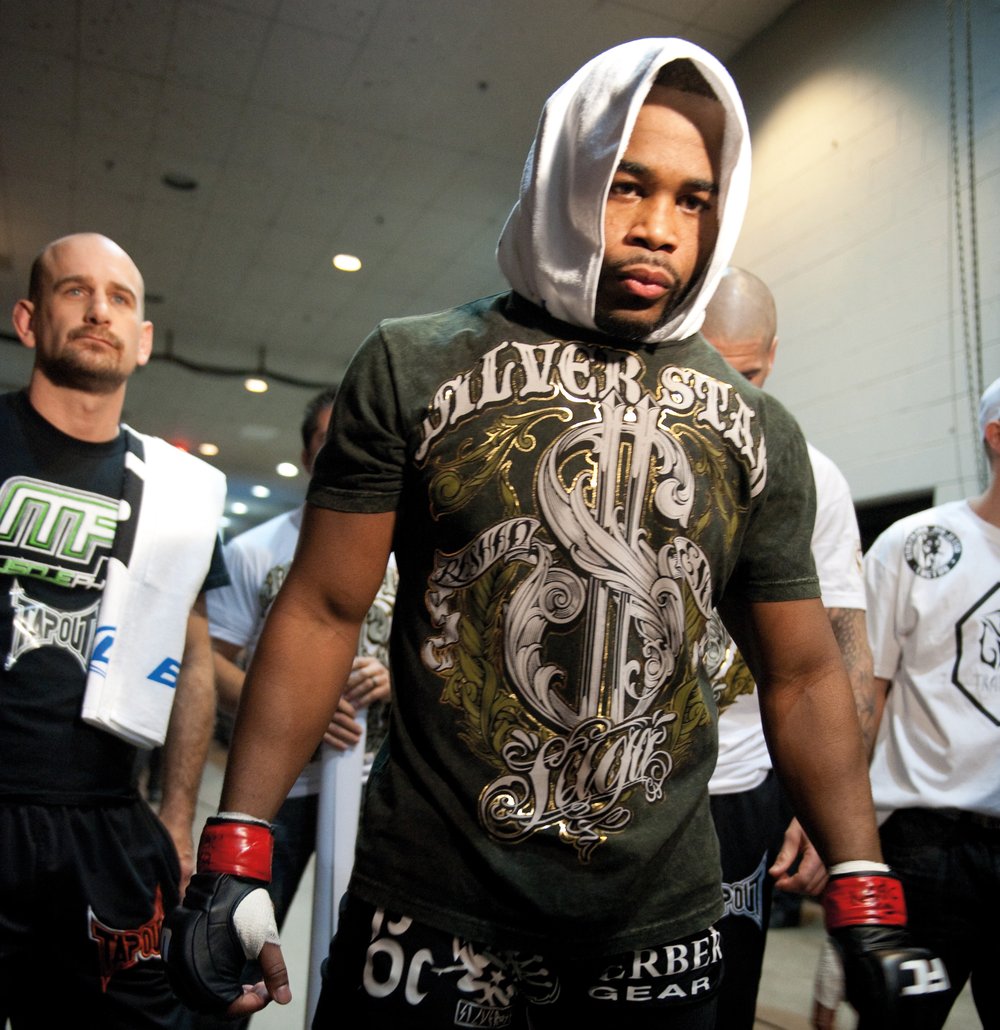
Supercoaches know when somebody is better than them, they know the humble road to self-improvement, and they know when to bring in others to help. That is why they have built growing armies of the world’s best fighters to work under them. Nelson has Sean Sherk and Brock Lesnar; Jackson has Georges St Pierre, Rashad Evans and Nate Marquardt; Tompkins has helped Wanderlei Silva and Vitor Belfort; Dellagrotte honed the skills of Stephan Bonnar and Kenny Florian; Liborio works with Thiago Alves and co.
“Tompkins knows where to get help from the best people,” says Horodecki. “He’s not going to show you how to do crazy twists or something, but he’ll bring somebody in who will get your game right for the jiu-jitsu match. He knows the right people and the right time to bring them in.”
Guida elaborates, insisting it is the blend of top-level coaches and training partners that make the likes of Greg Jackson so appealing. “You see the top fighters from right around the world come and train with Greg and that says a lot about the guy. Some gyms are very territorial, they will leave the door open for others but they won’t go and seek training elsewhere themselves. Greg is the exact opposite, that is why he goes to several states to train and instruct others. He has a revolving door for coaches to come and help him and vice-versa. That’s what makes a legendary coach.
“I’m seeing changes in my game already, and that partially reflects on my training buddies. You walk into the gym and there can be 40 faces there. There are new faces every week, I ask some of them what they think of the gym and they say ‘Man, I wish I had been training here all my life.’ There’s something special going on here.”
Lombardi’s opening statement was right. Leaders are not born, they are made by way of a constant dedication to self-improvement, a dedication to hard work and talent, but also an admission that there is always somebody better to learn from. “The fight game is a science to Greg,” concludes Guida. “He’s a scientist in the world of mixed martial arts. He can lead me to that gold lightweight strap.”
Jackson and co are perhaps not to be understood as supercoaches, but more accurately coaches with the necessary desire to be super.
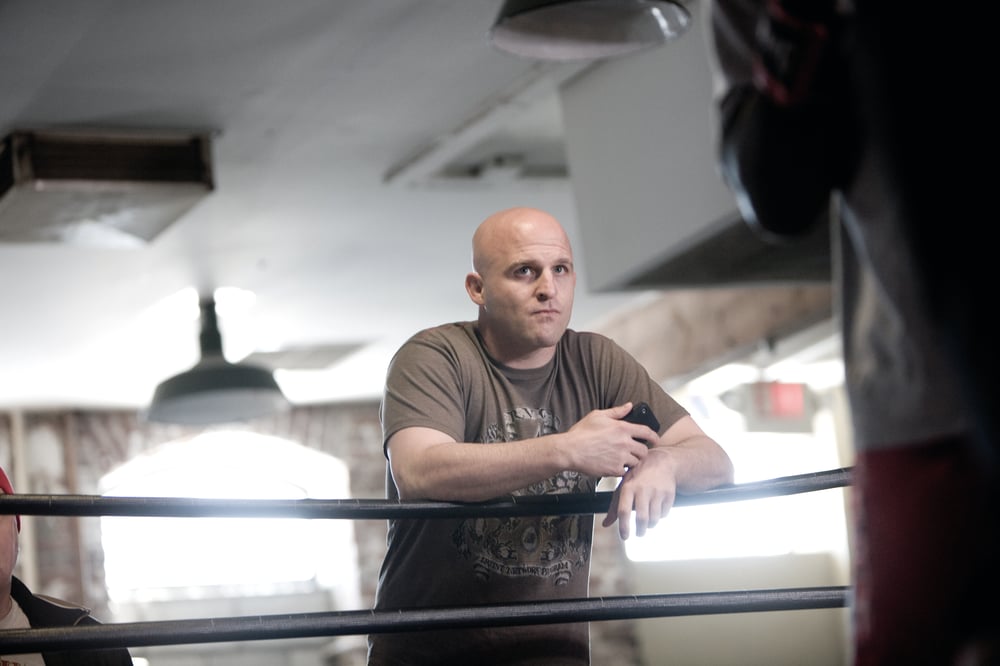
World-Class Coaches
A glance at an additional seven of the best coaches in the world today.
Ryan Parsons
Unusual in that Parsons prefers to work with only one or two fighters at a time instead of large teams, he coaches ‘King’ Mo Lawal and Jason ‘Mayhem’ Miller. Known for his cerebral approach to coaching and willingness to bring in expert coaches from other disciplines.
Ricardo Liborio
The head coach at American Top Team, ‘Libo’ has an almost mythical status for his ability to teach. His many fighters claim he is one of the best coaches in the world – evidently he is also able to manage a huge team (ATT has 30+ fighters on its books).
Marc Dellagrotte
The Boston-based striker supremo is considered one of the best Muay Thai coaches in MMA. A working-class guy who speaks fluent Thai, the head coach at Sityodtong is responsible for turning out some of the sharpest strikers in MMA.
Javier Mendez
Founder of the American Kickboxing Academy, Mendez is a former kickboxing champion-turned-coach. He oversees the training for fighters such as Cain Velasquez, Mike Swick, Jon Fitch, Josh Koscheck, Josh Thomson and more.
Rico Chiapparelli
A shadowy figure who stays well out of the limelight, Rico is a former world-class wrestler who was responsible for training the first generation of wrestlers in the mid-’90s. He kickstarted the MMA careers of Randy Couture, Dan Henderson and more. Now runs the R1 gym in LA.
Matt Hume
Seattle-based Hume is an in-demand coach who works with everyone from Rich Franklin and Jens Pulver to Hayato Sakurai and Chris Leben. Took Josh Barnett from a 300lb fat kid to the youngest-ever UFC heavyweight champion.
Pat Miletich
One of the first men recognized as a ‘supercoach’, former UFC welterweight champion Miletich coached Jens Pulver, Matt Hughes and Tim Sylvia to UFC gold.
Photos by Esther Lin, Andrew Demattos & Josh Hedges










